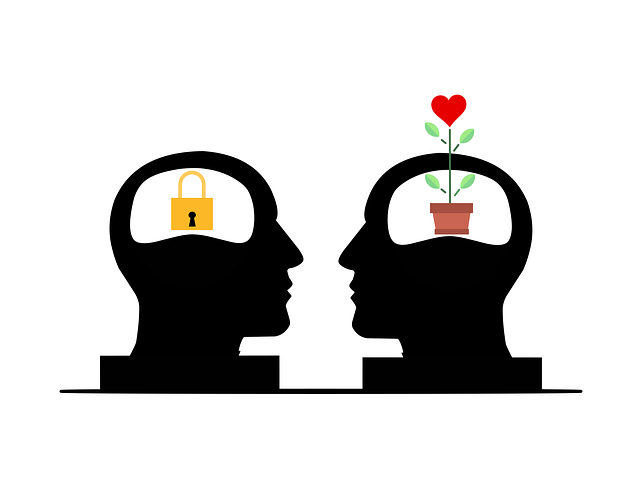Elder trauma, often overlooked, presents unique challenges in support services, especially regarding losses like death, health decline, and environmental changes. Effective therapy for elders goes beyond traditional counseling, offering safe spaces to share stories, mental wellness techniques, stress management, and self-care practices specific to their generation. Grief counseling is crucial for processing losses, rebuilding purpose, and ensuring solace during their golden years. Tailored counseling services, integrated with mindfulness meditation and cultural competency training, address emotional challenges unique to the elderly, fostering resilience and improved quality of life through community outreach programs that empower them with coping strategies.
Trauma support services for elderly individuals are gaining critical importance as we recognize the profound impact of trauma on aging populations. This article delves into the complex world of elder trauma, highlighting its unique challenges distinct from younger adults. We explore effective strategies, including therapy for grief and various counseling services tailored to seniors’ needs. Additionally, it discusses creating supportive environments and leveraging community resources to foster continuous care, ultimately enhancing the quality of life for older adults.
- Understanding Elder Trauma and Its Unique Challenges
- The Role of Therapy in Supporting Elders' Grief
- Types of Counseling Services for Elderly Individuals
- Creating a Safe Space: Environment and Approach for Effective Support
- Community Resources and Building Networks for Continuous Care
Understanding Elder Trauma and Its Unique Challenges

Elder trauma, often overlooked, presents unique challenges within the realm of support services. As individuals age, they may experience profound losses, including the passing of loved ones, the decline of physical health, or the departure from familiar environments. These events can trigger complex emotions and memories, leading to conditions like depression, anxiety, and even post-traumatic stress disorder (PTSD). Unlike younger individuals, elders might express these struggles differently, often in subtle ways, making it crucial for support systems to be attuned to their unique needs.
Therapy for elders goes beyond traditional counseling. It involves creating safe spaces where they can openly share their stories without judgment. Incorporating elements from mental wellness podcast series production, stress management techniques, and self-care practices tailored to their generation can significantly enhance healing. Grief counseling, in particular, plays a vital role in helping elders process their losses and rebuild a sense of purpose, ensuring they find solace and support throughout their golden years.
The Role of Therapy in Supporting Elders' Grief

Therapy plays a pivotal role in supporting elders’ grief by providing a safe and non-judgmental space for them to process their emotions. Many elderly individuals may face unique challenges when dealing with loss, including social isolation, physical health issues, and cognitive changes. Grief counseling offers tailored techniques to address these complexities. Through therapeutic interventions, elders can explore and express their feelings openly, gaining tools to navigate the emotional landscape of bereavement.
Mindfulness meditation is increasingly incorporated into therapy for elders’ grief, helping them cultivate present-moment awareness and promote emotional healing processes. Additionally, healthcare provider cultural competency training is essential as it ensures that support is sensitive to the diverse needs and beliefs of elderly populations. This holistic approach to therapy not only addresses the immediate grief but also fosters long-term resilience and improved quality of life for seniors navigating loss.
Types of Counseling Services for Elderly Individuals

The provision of counseling services for elderly individuals is a vital component of trauma support, recognizing that aging can bring unique challenges and experiences that may trigger emotional distress. Different types of therapy cater to diverse needs, with a focus on both immediate support and long-term resilience building. One such specialized service is grief counseling, designed to help seniors process and cope with the loss of loved ones, which is a common source of trauma in later life. This form of therapy provides a safe space for emotions to be expressed and helps individuals navigate the complex emotional healing processes associated with grief.
Beyond individual therapy, community outreach program implementation plays a crucial role in offering support networks that foster emotional well-being. These programs often incorporate group counseling sessions tailored to seniors’ experiences, encouraging peer connections and sharing of resources. Such initiatives not only enhance social interaction but also empower the elderly population by imparting coping mechanisms and promoting overall mental health through resilience-building activities.
Creating a Safe Space: Environment and Approach for Effective Support

Creating a safe space is paramount when providing trauma support services, especially for elders who may be experiencing grief and loss. The environment and approach used in therapy sessions play a significant role in facilitating effective healing. A nurturing atmosphere, free from judgment and designed to promote comfort, can significantly enhance an elder’s willingness to open up about their traumatic experiences. This involves ensuring discreet settings, using empathetic language, and adopting non-threatening gestures that convey understanding and support.
Therapy for elders should integrate stress reduction methods tailored to their unique needs and emotional healing processes that acknowledge the impact of past traumas. By incorporating resilience-building techniques, counselors can help these individuals navigate their grief while cultivating coping mechanisms that empower them to face challenges head-on. Such a supportive environment not only facilitates open communication but also fosters trust, making it easier for elders to embark on their journey towards emotional healing and restoration.
Community Resources and Building Networks for Continuous Care

In addressing trauma, especially among elderly individuals, one of the key aspects is leveraging community resources and building robust networks for continuous care. Community-based organizations play a pivotal role in providing access to various support services, including therapy for elders and specialized grief counseling. These initiatives not only offer immediate relief but also foster mental health awareness, ensuring that those affected by trauma have ongoing support tailored to their unique needs.
By establishing strong connections within the community, networks can facilitate the development of public awareness campaigns around anxiety relief and other mental health concerns. Such collaborations enable a holistic approach to trauma care, where individuals receive not just therapy for specific conditions but also gain access to broader mental health services that promote overall well-being. This comprehensive strategy ensures that elders in need have a support system that extends beyond individual therapy sessions, fostering a sense of community and continuous care.
In addressing trauma support services for elders, understanding their unique challenges, particularly in the context of grief, is paramount. The article has explored various avenues, from the role of therapy in managing elder grief to different counseling services and creating safe, supportive environments. By harnessing community resources and building robust care networks, we can ensure continuous, effective support for this vulnerable population. Incorporating therapy for elders’ grief counseling remains a cornerstone in providing comprehensive care tailored to their specific needs.









